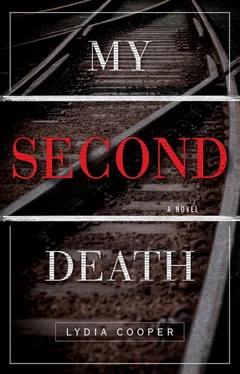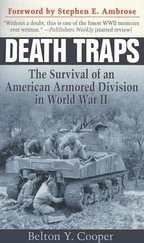“I don’t even know why I’m doing this,” I say. “I just—”
“No, I get what you’re saying,” he says. “After the last time, you’re careful. That makes sense. But it’ll be fine. Do you want to stop by and see the apartment? See your room?”
“No,” I say. “I live in a fucking garage. I’m not picky.”
He starts to laugh. It’s a soft sound like water gurgling down a drain.
I wait until he stops laughing. “When should I move in?”
“Whenever you want,” he says. He breathes in a couple times, easing the laughter out of his voice. But his words sound stretched, broadened, like he’s still smiling. “I have class pretty much every day. Just tell me when you’re moving in and I’ll skip. I can help you. I’m stronger than I look.”
“So am I,” I say. “But you probably guessed that from my macho swearing. I think I’m going to move later this week. I’m busy tomorrow.”
“Oh,” he says. “Wow.” And he starts laughing again. I have no idea what I said that was funny this time. “This is pretty sudden. Kind of strange.”
I don’t say anything.
He says, “Strange in a good way. I’m pretty happy about this, Mickey. I think this is going to be fun.”
Fun. Jesus. I hang up the phone.
I am surprised to find that my shirt feels damp, that sweat sticks my hair to the back of my neck. My pulse feels steady but my body is producing adrenaline as if some atavistic part of my brain is already feeling the chill breath of some terrible fate.
After a few seconds, when I feel less flushed and sick, I get up and go inside.
My mother is in the kitchen with her laptop open, probably sharing recipes online or whatever she and her cyber ladyfriends do.
“I’m moving out,” I say.
Her head jerks up. She pushes the lid of her laptop closed and just sits there at the island. Then she says, “Oh — oh.” She smiles. “That’s really — that’s surprising. But, but it’s good. I’m really proud of you.”
I look at her.
If Jack the Ripper had lived in a garage instead of overcrowded London, if he had run eight miles a day in the rain and sleet and snow of northern Ohio, if he had gone for weeks at a time without interacting with another human being, no history book in the world would print his name.
I wonder if my mother has any idea what I am risking. She should, but then she works so hard to construct her mental fairytales about me, playing like I am a slightly difficult but fundamentally normal daughter.
I haven’t killed a man since I was ten, but my last roommate exited the apartment we shared with a gash in her thigh, blood gushing between her clenched fingers as the paramedics strapped her to a gurney. My ability to play the game is remarkable. I follow the rules, I strip away distractions, I live by the law with greater asceticism and fanaticism than Saint Anthony practiced in his Egyptian tomb. But as in any game I do lose forays from time to time, and with each loss the tension inside me grows. A slow erosion of willpower. The odds are good that I will end up in prison, my name splashed across CNN or, worse, indexed in the history books. I know my parents see what they want to see in me: a decade of calm, controlled behavior, an unpleasant but generally ordinary individual. They don’t know — I can’t let them know — that the best my parents can hope for me is that I die anonymous.
“Are you — are you happy ? About this decision?” My mother is looking at me, a frown wrinkle between her eyebrows.
I don’t really understand what she means. The decision to move out or stay in my garage has nothing to do with happiness. But I suppose without the context of a cryptic Nietzsche quote, a corpse, and a mysterious hooded stranger with a walleye who keeps turning up, she has very little to work on in terms of deducing my motivation.
“Sure,” I say. “Definitely. Yes.”
The next Sunday I pack my books and clothes into cardboard boxes, duct-tape them shut, and load them into the passenger seat and capacious trunk of the Chevelle. The sky glows like a fire opal, cream lanced with sizzling gold and pink and blue. Frost sparkles over the slate roofs of houses.
For a second, I sit with my palms on the steering wheel, my boxes piled around me. Ready to drive away from my parents’ house.
My cell phone vibrates in my pocket. But I don’t pick it up. I know it’s Dave. I don’t know why, but he’s been weird about my decision to move out. At first he yelled and said that I had promised to move in with him whenever I was ready to move out. Which I never did, I’m sure of it. I don’t know why he was lying to me. He lies to everyone, but not to me. But then he called back and apologized and said he was just scared for my safety.
“It’s not a good place,” he’d said. “What about the neighborhood? It’s sketchy, is what it is.” He laughed and his voice got singsongy. “A cesspool of crime. Gang warfare. Genocide, even. Pedophilia. Incest. Mori bund ity.”
“That’s not a word.”
“I’m writing a poem. It’s about the word moribundity. Call the Oxford English Dictionary.”
“Jesus.”
“But I’m just — I just care about you. I care about my baby sister, all grown up and on her own but still . God. I mean what if something bad happens?”
“It’s fine,” I said. “Everything is going to be fine.”
The phone stops vibrating. I take a breath. And I put the car in gear. Say, not quite out loud, “Everything is going to be fine.”
But even I don’t believe that.
I drive through the city until I reach the glass and brick buildings of the university. Manicured sports fields and parking garages give way to cracked asphalt and pulpboard-windowed houses. Buicks with starred windshields hump the sidewalks and a kid with a basketball dives across the street in front of me. I have to step on the brakes hard.
When I pull up into the driveway by Aidan’s apartment, I look over my shoulder. In the light of day the condemned house’s roof sags in the center, concave with gravity. A house gravid with death. There are still no cop cars out front. I wonder why no one has reported the smell, but it’s cold enough that there aren’t many people just walking around outside. And you can’t smell it unless you’re inside the house.
I drag a basket of clothes out of the Chevelle and, balancing it on my hip, weave my way up to the unstained wooden staircase. One of the slats still has a pink width measurement inked into the grain. The stairs smell piney, raw, a lingering hint of sawdust and sap.
I pull the apartment key from my jacket pocket. Aidan stopped by to drop them off yesterday. I pretended I wasn’t home. He left them with my mother.
The door at the top of the steps opens on the kitchen. The kitchen floor is yellow and brown linoleum. The sink basin is streaked with white and yellow lime residue. There is a full-sized refrigerator and a small metal-legged table with two folding chairs. To the left is a twenty-something male’s version of a living room: flatscreen TV, hi-fi sound system, three racks of CDs and Blu-ray discs, and an aging mauve couch with yellow foam crumbling through the weave. On the far wall a large window framed by dirty white drapes looks down into the frost-rimed street below. A kid in a bright red insulated coat runs between parked cars, and a second kid with a hooded jacket rides by on a scooter. When I look left, I can see the taller brick buildings of the university and a fringe of bony tree branches and telephone wires. Straight ahead is the balding roof of the house in whose inner sanctum lies a half-skinned body.
I go down a narrow hallway opening off the living room. A door opens off the left and another off the right. The door on the right is half open. I push it in and see a large bed, rumpled sheets piled on top. The beige walls are covered with sketches and prints of faces, hands, clusters of fruit, city skylines.
Читать дальше












